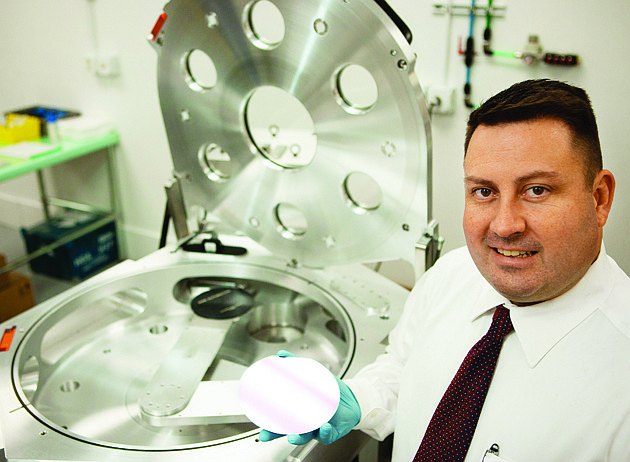- November 25, 2024
-
-
Loading

Loading

In 2009, three guys in a strip-mall office started Hine Automation. Resurrecting the name from a company they purchased in the downturn, they began servicing legacy robots for the semiconductor industry.
Less than a year into business, the company shifted to design its own robots, which proved to be more lucrative — the business earned positive cash flow every year after its first, its founders say. “Only reason we weren't the first year was because of the startup costs. A lot of the stuff we have, we bought the first year,” says Jeffrey Cole, one of Hine's three co-founders.
Now the company designs and builds robots for semiconductor manufacturers, a move that helped it expand quickly. “The semiconductor industry provides products to almost every electronic in the world,” says Scott Craver, Hine Automation's general manager.
Within the first couple years, the company took over three additional spaces in the strip mall. “It got to the point where the production floor was so inefficient — it was a maze to get from one side to the other — that we needed to do something to get to that next level,” Craver says.
So in October, the company of 11 expanded its manufacturing capacity by 300% to a 10,000-square-foot space off Interstate 275 in St. Petersburg, centrally located to the airport, the company's suppliers and most of the company's employees. The facility is used to assemble the robots and test before shipment. The company ships the product fully assembled within eight to 12 weeks of receiving an order. Larger companies usually require about 12 to 16 weeks, Craver says.
The firm's move left it room to grow, so it signed a seven-year lease with the landlord, but included provisions to negotiate if it needs to expand again during that time. Craver estimates that a move could happen again in the next three to five years.
The company's three-year business plan includes projections of doubling revenue. “We're on fire we're so busy,” Craver says.
Competing in a large market with billion-dollar established companies, such as Brooks Automation in the Northeast and Genmark Automation in California, Hine Automation has carved a niche by servicing smaller and more customized orders. It also provides a quicker turnaround to market with cost-effective products, Craver says.
To be more flexible and deliver products faster, Hine Automation often partners with local suppliers or specialized machine shops to put together the components it designs for the robots. Staying local can be convenient for component specifications that can't always be presented in a drawing, and is more easily communicated and adjusted through a face-to-face conversation.
The company has partnered with St. Pete-based Rev-Tech Machining Solutions, a local specialized machine shop focused on high-precision aluminum machinery, Deleon Dulond Machining and Tooling in Sarasota, Gulf Machining in Clearwater and DNC Machine & Manufacturing in Tarpon Springs. It's also worked with Fort Lauderdale's Tropical Assemblies for printed circuit boards.
Some of the company's suppliers are in the U.S., and others are outside the country, Craver says. “Because we're trying to be a cost-competitive company, we're sometimes driven to products outside the U.S.”
With customers in Europe and Asia, and seven sales reps around the globe, eventually the company could add service centers globally, Craver says. Regardless, he hopes to keep the manufacturing in Florida.
Quality remains a primary concern, with longevity at the top of list. With each purchase, Hine Automation's clients are making capital investments ranging from $20,000 to $75,000 for robotics and $75,000 to $300,000 for the systems that use them. They expect the equipment to last 20 to 25 years, and they want the company that made it to be around to service or rebuild it, Craver says. “We don't want to give the appearance that we're not sustainable, that we're not going to be around long-term. It's not just about product. It's about product that will be around for a long time.”